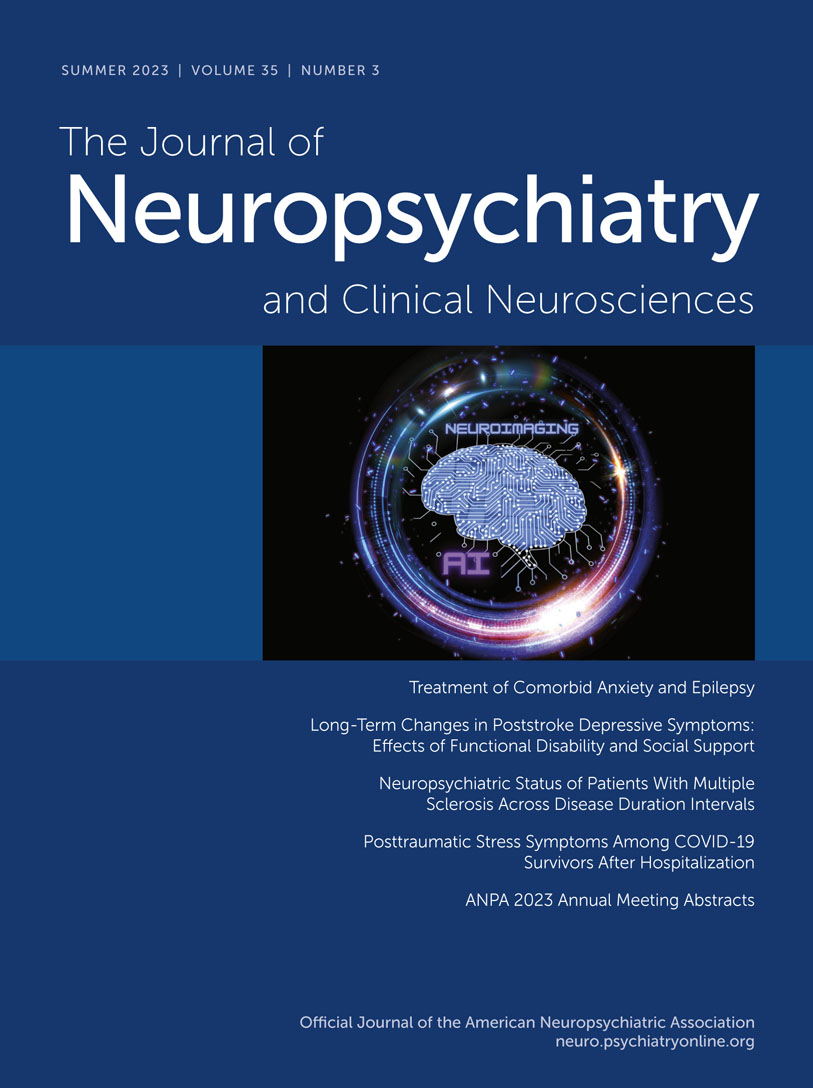Introversion and Neuroticism in Akinetic-Rigid Parkinson’s Disease: Association With Frontal-Executive Dysfunction
Abstract
Objective:
Personality changes have often been reported among people with Parkinson’s disease (PD); however, no studies have investigated the associations between personality traits, cognitive function, and specific motor symptoms. In this study, the investigators assessed whether particular personality traits were associated with specific motor subtypes of PD (e.g., tremor-dominant and akinetic-rigid phenotypes) and whether frontal-executive functions were associated with personality traits among patients with a specific motor phenotype.
Methods:
Forty-one people with PD and 40 healthy control participants were enrolled in the study. All participants underwent assessments of cognitive and psychological function and personality traits. The study was conducted in Italy.
Results:
Tremor-dominant symptoms occurred among 20 (48.8%) people with PD, whereas 21 (51.2%) patients exhibited akinetic-rigid symptoms. Multivariate analyses of variance revealed that participants with akinetic-rigid PD demonstrated significantly poorer performance on frontal-executive tests compared with those with tremor-dominant PD. Moreover, those with akinetic-rigid PD exhibited more psychopathological symptoms and higher neuroticism and introversion compared with those with tremor-dominant PD. Correlations revealed that among participants with akinetic-rigid PD, psychopathological symptoms and neuroticism and introversion personality traits were associated with frontal-executive dysfunction, whereas among those with tremor-dominant PD, no significant associations were found between personality traits and cognitive abilities.
Conclusions:
These findings suggest that specific personality and frontal-executive profiles are associated with the akinetic-rigid motor subtype of PD, thus helping to refine the different clinical manifestations of PD. A better understanding of the psychological, personality, and cognitive mechanisms in PD could also help to develop more targeted treatments.
Access content
To read the fulltext, please use one of the options below to sign in or purchase access.- Personal login
- Institutional Login
- Sign in via OpenAthens
- Register for access
-
Please login/register if you wish to pair your device and check access availability.
Not a subscriber?
PsychiatryOnline subscription options offer access to the DSM-5 library, books, journals, CME, and patient resources. This all-in-one virtual library provides psychiatrists and mental health professionals with key resources for diagnosis, treatment, research, and professional development.
Need more help? PsychiatryOnline Customer Service may be reached by emailing [email protected] or by calling 800-368-5777 (in the U.S.) or 703-907-7322 (outside the U.S.).



